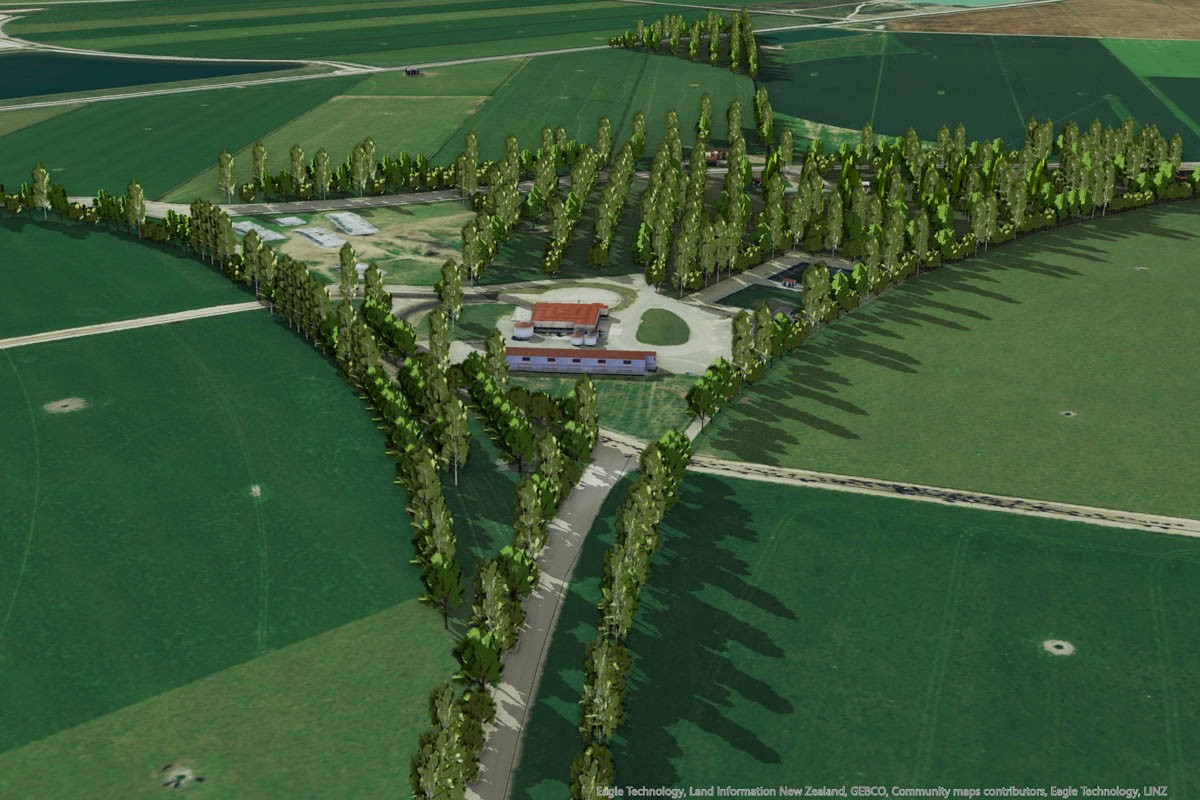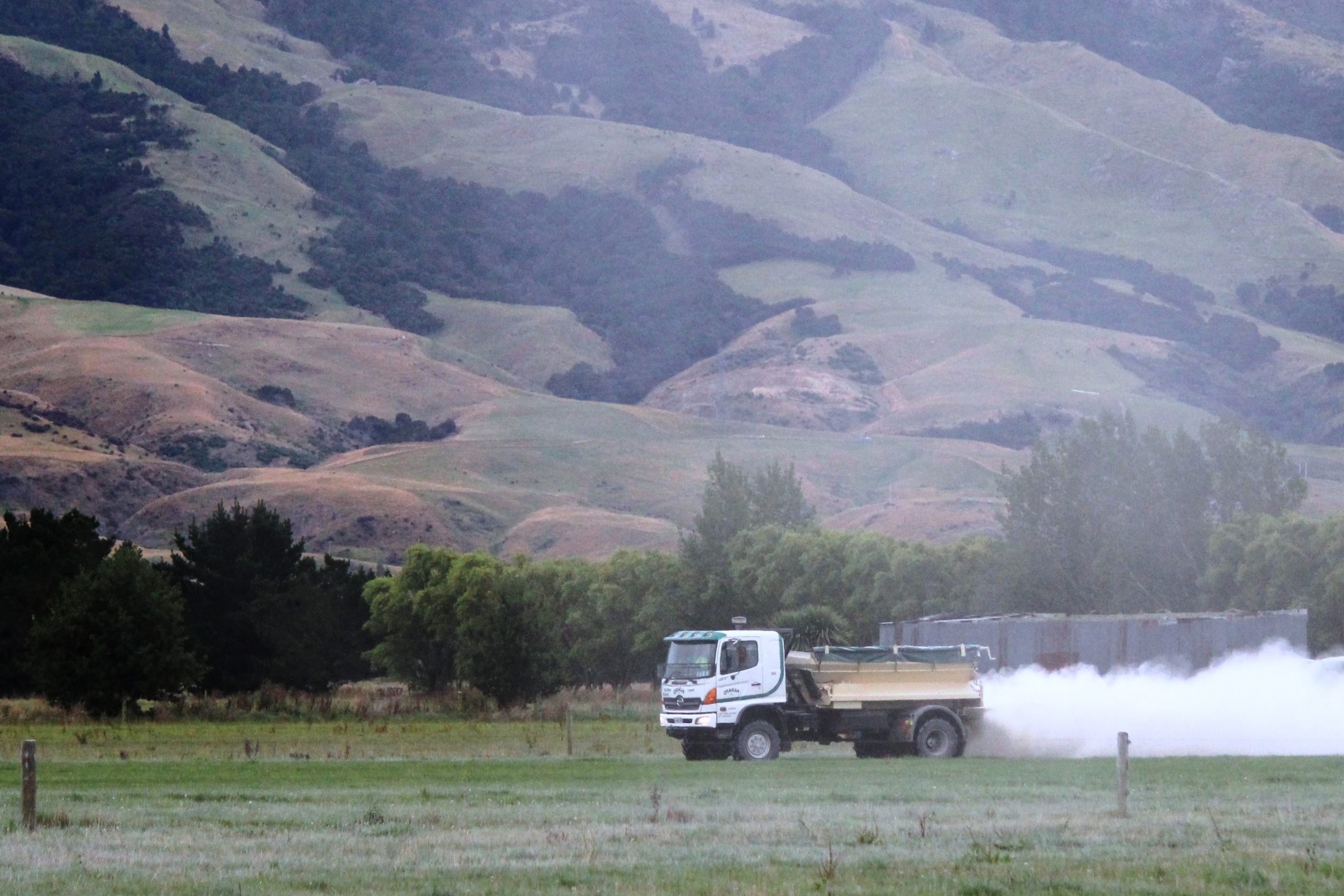Zanda McDonald Award-winner Morgan Easton tells Anne Lee what he learned on his prize tour of large-scale Australian farming operations.
Morgan Easton’s key learning from his Zanda McDonald Award study tour to Australia late last year is all about people.
The 34-year old Waitaki dairy farmer was the 2017 award winner and in October he and wife Hayley travelled to Australia, visiting a number of mostly intergenerational, family, farming businesses.
The vast scale was well beyond anything normally seen in this country and the farms visited were focused on beef cattle.
Nevertheless, the lessons learned were just as applicable to the Eastons and their New Zealand family dairy business.
“My biggest key learning from it can be summed up simply – it’s the importance of key people in your business,” he says.
Morgan and Hayley are sharemilkers and farm owners just north of Oamaru on the south side of the Waitaki River.Morgan graduated from Lincoln University with a Bachelor of Agricultural Science, having spent this final year at Cornell University in the United States on an exchange.
After a stint with Dexcel, as it was known before it became DairyNZ, he went on to earn a Fulbright Scholarship, allowing him to complete his master’s degree in Agricultural Economics at Purdue University, in 2007.
When he and English-born Hayley, a graduate of Leeds University with degrees in management and geography, returned to NZ they settled back on the Waitaki plains going into business with Morgan’s parents David and Clare.
Since then the growth of the family business as a whole, and for the two parties separately is testament to the power of successful inter-generational enterprises.
They started out as lower-order sharemilkers for David and Clare who had just bought the 400-hectare Twin Terraces dairy farm from Meridian Energy for redevelopment.
David is a second-generation family farmer who initially followed in his father’s footsteps mixed cropping in the area before he and Clare converted their first farm to dairy in the early 1990s.
Morgan and Hayley saved hard and worked hard on the development with David and Clare enabling them to gradually buy cows from David and Clare and lease them back into the herd.
Over time, as cow numbers doubled as a result of the farm’s virtual re-conversion and shift from border-dyke to pivot irrigation, Morgan and Hayley were able to build their own herd so that by 2012 they could step up to 50-50 sharemilking the 1350 cows then being milked on the property.
“We want to grow the business – I know it’s early yet for the kids but we’re already thinking about their future too.”
In 2013 they won the Canterbury-North Otago Sharemilker – Equity Manager of the year award and went on to be national runners up.
Soon after, they bought the neighbouring 160ha farm, Stoneyhurst, in an equity partnership with David and Clare.
Morgan and Hayley are majority owners in the partnership and their sharemilking company sharemilks that property too.
The purchase came just as the low payout years hit which meant they adjusted their development plan.
They carried on upgrading the irrigation as that was the most important factor to growing more high-quality pasture and lifting productivity.
Instead of going straight into pasture across the whole farm, though, they put a high percentage of the area into crop, allowing them to winter young stock and cows while increasing cow numbers in stages.
On Twin Terraces they cut cow numbers to 1300 and put fodder beet on the milking platform to winter a proportion of cows there too.
It allowed them to cull more heavily to tidy up the herd and maintain production at 470-480kg milksolids (MS)/cow while keeping bought-in feed inputs under 500kg drymatter (DM)/cow.
They send their lower-producing and lower-breeding index cows to Stoneyhurst and bull mated them.
It allowed them to keep mating costs down and meant no replacements were kept from those poorer-quality animals.
Because Stoneyhurst neighbours Twin Terraces they run all the cows through the Twin Terraces dairy at the start of calving.
All heifer calves are DNA tested.
Morgan has a tight control on costs, a focus on good pasture management and breeding high BW animals to ensure good conversion efficiency and milk production.
While Morgan says he doesn’t have a political bent he does take a strong interest in the things that effect agriculture beyond the farm gate, particularly on a global scale and enjoys travelling to explore those issues first hand.
“I think that came with my first year in America (at Cornell) – it broadened my horizons and probably unsettled me as well.”
In 2013 he travelled to Washington DC to a Pacific Partnership Forum with a Government trade delegation that included 30 under 30-year olds.
It was part of discussions going on at the time around the Trans Pacific Partnership (TPP) trade talks and centred on trade issues.
They had meetings with senators and executives from companies such as Google with some of the proceedings taking place in the United Nations building.
“That was very interesting to be part of and to experience,” he says.
He takes a strong interest in his cooperative and has completed a Fonterra governance course.
Morgan maintains regular contact with the friends he made during his time at university in the US keeping him up-to-date with the issues that are affecting one of NZ’s biggest competitors and markets.
“We are proud Fonterra farmers – that’s important to say. We’re very lucky to have the expertise in Fonterra that we have working for us outside the farm gate.
“Wherever you go in the world we’re the envy of overseas farmers for what we have in Fonterra, yet people here can be quick to criticise.”
In tracks of a leading Aussie farmer
It’s no surprise with Morgan’s wider interests that he took up the opportunity to apply for the Zanda McDonald Award in late 2016.
The prize included a mentoring trip among top farmers in Australia and/or NZ, a place on one of Rabobank’s business management programmes and a cash prize.
Morgan is the third recipient of the award which was started to honour and remember Australian farmer Zanda (Alexander) McDonald who died accidentally, aged just 41, in 2013.
He was a founding member of Platinum Primary Producers (PPP), a group that now includes more than 150 leading farmers and agricultural leaders in Australia and NZ.
The award is sponsored by PPP, Allflex, Rabobank and aircraft manufacturer Pilatus, and is announced each year at the PPP conference, to be held in Taupo this year in March.
It’s presented to outstanding young leaders aged under 35 who live and work in the agricultural sector with the aim of supporting them in their career.
The three finalists this year are:
- Lisa Kendall, 25, from Auckland. Lisa is the owner-operator of Nurture Farming Ltd.
- Thomas McDonald, 24. He is the business manager of Spring Sheep Milk Company in Waikato.
- Janet Reddan, 33, a former agronomist now cattle producer from Roma, Queensland.
The study tour to Australia combined two of Morgan’s big interests – farming and flying. With one of the main sponsors Pilatus, travel for the study tour was largely in one of the company’s PC12 single-engine turbo-prop planes. While he didn’t get the chance to put his pilot’s licence to use, Morgan says flying in the PC12 was a fantastic way to cover a lot of ground and get to visit with a number of leading farmers and agricultural business operators.
“We just wouldn’t have been able to see the people we did if we’d travelled any other way.”
The first stop after leaving Bankstown airport outside of Sydney was to pick up Macquarie Bank’s Paraway Pastoral chief executive Jock Whittle and head to Condobolin and visit Paraway’s Borambil Station.
Paraway Pastoral is the investment bank’s agricultural investment management company.
Morgan says the scale of operations in Australia was apparent from the outset with the station, which focuses on cattle and Merinos, investigating diversifying into cotton.
“It’s trial plot was 300ha.”
Morgan and Hayley then had one-on-one time with Jock Whittle talking about the focus of Morgan’s study tour – how family businesses continue to grow and thrive inter-generationally.
“We talked a lot about the financial aspects of that.”
One of the messages from that conversation was to make sure land purchases were priced where there’s a good return on capital.
Capital gain is still a driver of many buyers’ decisions when it comes to farmland along with numerous factors that don’t relate to the earning capacity of the land.
“Over the years it’s enabled farmers selling up to get out at good prices – as long as there’s a next generation coming in and playing the same game.
“But if you’re looking at something purely on a return basis and other buyers aren’t you can be miles apart on what you’re prepared to pay for it and you end up missing out – it can limit your opportunities to grow,” Morgan says.
The next day they visited George King’s family operation Coombing Park. It had been in the family for generations and came complete with convict history such as balls and chains still intact in old buildings.
They ran 3000 head of cattle on the property as one mob and had yards that could hold 3500.
Morgan and Hayley then flew to Glen Ines in northern New South Wales where they met David and Prue Bonfield, owners of Palgrove – one of Australia’s leading and largest stud cattle breeders selling close to 1000 stud animals a year.
The Bonfields’ five properties are spread from northern New South Wales to Queensland – a distance of 1300km from the most southern to northernmost farm.
In NZ terms that would be a distance from Oamaru to the top of the North Island.
The NZ Super Fund recently took a stake in the company in its first offshore investment in rural land.
The family sells Charolais and Ultra Black cattle – a cross between Angus and Brahman, making the animals better able to thrive in the heat.
Morgan says they spent time with the Bonfields’ operations manager and the couple and again the key element of success was the importance of building and maintaining strong relationships whether it was with employees, contractors, buyers or sellers.
They also visited Euan and Kaye Murdoch’s Ultra Black and Brangus stud Nindooinbah near Beaudesert.
Euan had been in the pharmaceutical business before he sold up and bought the farming operation.
His focus had been on genetics and research which along with data was driving developments. The pneumatically operated cattle yards mean no one has to get in with the animals. They do about 72,000 cattle movements a year through their yards.
Morgan says one of the highlights for he and Hayley was to spend time with Zanda McDonald’s family.
Susan, Zanda’s sister, runs a large butchery chain, Super Butcher in Brisbane. The business was developed to give direct connection with consumers and again Morgan says the importance of key people was highlighted.
They spent the evening with Zanda’s brother James, Susan and Zanda’s wife Julie as well as other members of the business.
The family enterprise also exports its own meat.
Another family business with a vertically integrated supply chain is Australia Country Choice (ACC).
Morgan and Hayley visited the company’s feedlot, Brindley Park at Roma where 22,000 head of cattle were being fed.
The business has a meat works at Canon Hill in Brisbane where 260,000 head of cattle are processed each year – 240,000 of which are from ACC’s own properties.
Morgan says he and Hayley gained some fantastic insights into large-scale family run businesses and lessons that will definitely stay with them as they contemplate their own plans.
“We want to grow the business – I know it’s early yet for the kids but we’re already thinking about their future too.”





